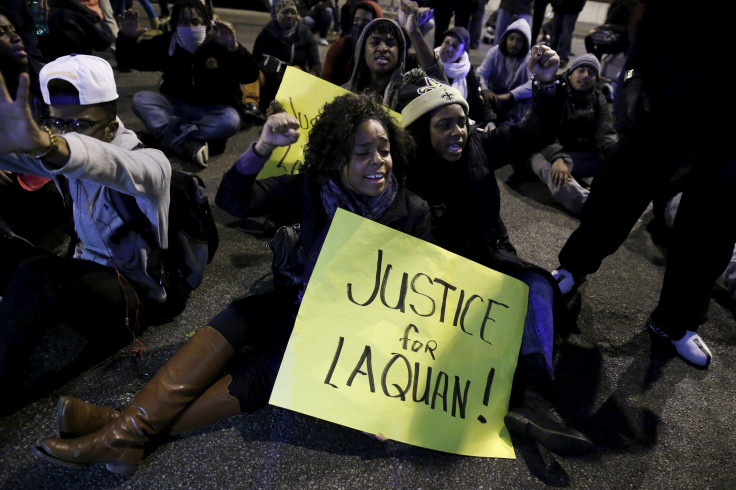Laquan McDonald Shooting: After Video's Release, Black Leaders Call For Investigation Into Chicago Police

Some of Chicago’s foremost black civic, political and religious leaders have urged for sweeping reforms and investigations into the city’s police department for its handling of the October 2014 shooting death of a black teenager, the New York Times reported. The shooting was captured on video, and city officials released the footage Tuesday.
The graphic video depicts 17-year-old Laquan McDonald being shot 16 times by a white police officer. Despite the release of the video and the filing of murder charges against Chicago police Officer Jason Van Dyke on Tuesday, black leaders have expressed outrage at the department and some have called for the police superintendent’s resignation.
“This situation is not isolated,” said Jedidiah Brown, founder of Chicago’s Young Leaders Alliance. “This is our reality.”
The Chicago Urban League and several local NAACP branches, as well as the Rev. Jesse Jackson, two members of Congress and others, have called for investigations or dramatic changes in the way the city’s police department is run. Many also called for the replacement of police superintendent Garry McCarthy. Anita Alvarez, the Cook County state’s attorney, has come under fire as well for not bringing the case forward until more than a year after McDonald’s death.
Even President Barack Obama addressed the incident Wednesday, posting a statement on Facebook saying he was “deeply disturbed” by the video and “personally grateful to the people of my hometown for keeping protests peaceful.”
Many leaders expressed frustration at what they said were longstanding issues in the city. Over the last 10 years, Chicago has paid an estimated $500 million in settlements and other costs related to police misconduct. A recent report by the Invisible Institute, a nonprofit journalism organization, also suggested that the vast majority of citizens’ complaints against the police department ended in no disciplinary action against officers.
“I don’t place my hope for what can happen in the criminal justice system,” said Charlene Carruthers, national director of Chicago's Black Youth Project 100. “The criminal justice system is not predictable when it comes to police officers and police officers who kill young black people.”
© Copyright IBTimes 2024. All rights reserved.











